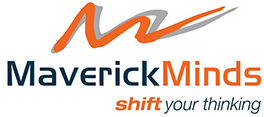We’ve been talking about the future of work for a long time now with very little innovation…until now. The Coronavirus pandemic has unleashed its natural force on us humans and now it’s our time to act swiftly. It is a massive disruption that requires compassionate and creative thinking. It is an opportunity to review and reconsider how and where we work. Rather than snap back we have been given a reset button. The genie has been released from the bottle.
Can work be the same? Do we want it to be the same – as it ever was? This is a once in lifetime opportunity to re-imagine the world of work. I wonder how you are re-imagining and seriously reviewing how you, your team and your organisation will navigate the possibility of new ways of working.
An article ‘The Future has Begun’ from the Melbourne Business School suggests “as organisations emerge from COVID-19, it’s important for leaders to reflect on what has worked and what hasn’t during the lockdown”. It is a time for recalibration. How can you design your business for a new future and economy?
Let’s hear it for flexible working – there is so much to be gained. It can be a win-win situation. It doesn’t have to be all or nothing. Being more considered as to how you can re-structure your working environment has loads of benefits. Who wants the daily commute and sitting in an office when a lot of work can be done elsewhere? If you are going to be in an office, then make it count and make it memorable. Use that time together for social interaction or working on a project that requires dedicated face to face time. General business activity can often be done elsewhere. We can have the best of both worlds.
Scott Farquhar Co-Founder of Atlassian advocates getting rid of the nine-to-five workday…as he says…that made sense during the industrial production line era. Technology won’t replace human interaction it just gives us more options.
Andrew Barnes is many things including a philanthropist, entrepreneur and CEO Co-founder of Perpetual Guardian in New Zealand. He also is a passionate advocate for a four-day week which is now embedded in Perpetual Guardian’s business model. Andrew’s epiphany arrived while reading an article in the Economist that showed studies of office workers in the UK and Canada were productive for 1.5 to 2.5 hours of a typical eight hour day.
He was gobsmacked and from there the journey began to look at how he could set the wheels in motion to create a fundamental change in the way people work at Perpetual Guardian based on productivity. Andrew’s book The 4 Day Week is worth reading and you can listen to Jurgen Strauss’s Innovabiz podcast. Jurgen interviewed me at the beginning of 2020 and asked who I would like him to interview and I suggested Andrew.
Be enlightened by Andrew’s thinking:
Others who see benefit in a possible 4 day week include Jacinda Ardern the Prime Minister of New Zealand. She contemplates that it is worth considering more flexible approaches to work that could benefit the NZ society.

